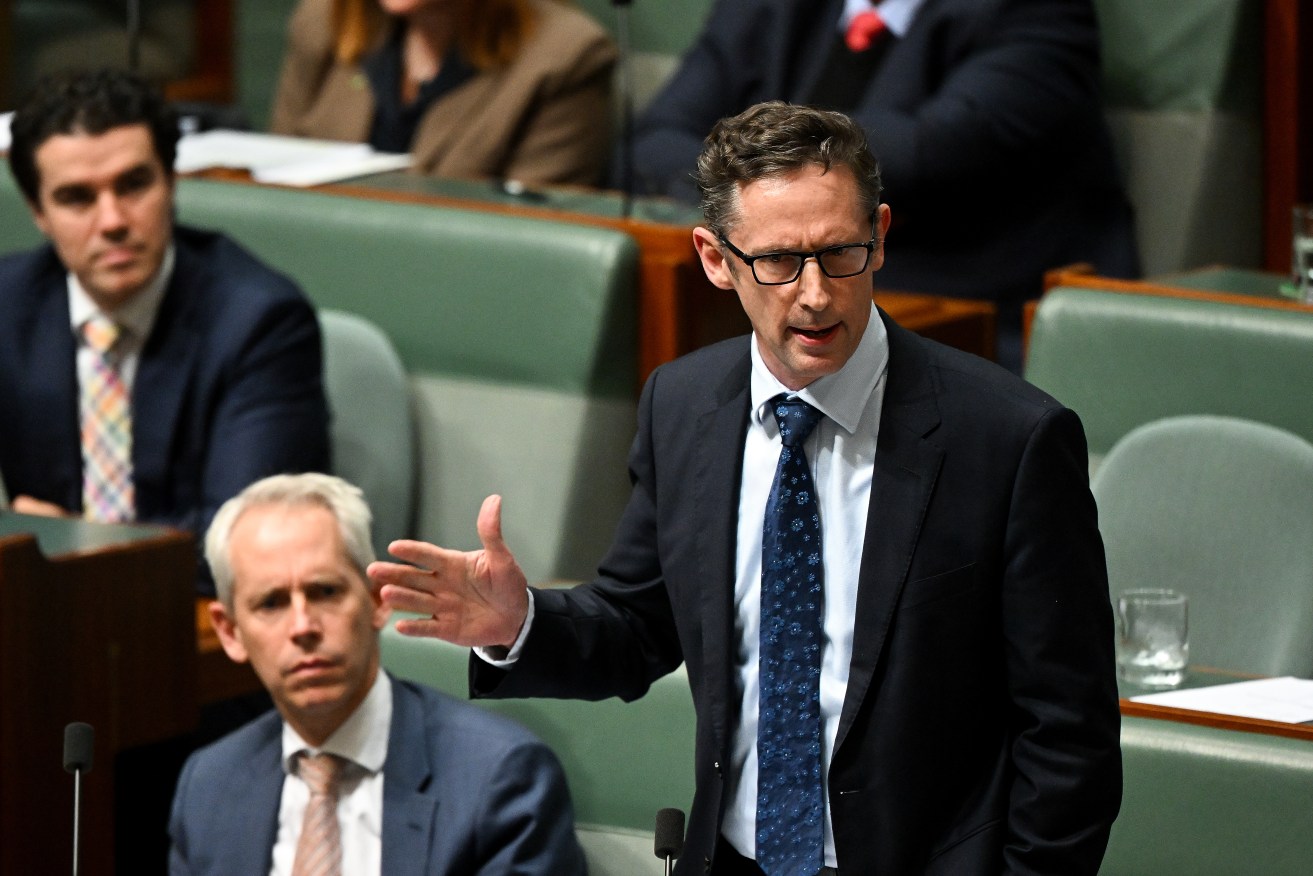Explained: Government promises cheaper and easier financial advice under overhaul


Stephen Jones says many super members aren't receiving financial advice ahead of retirement. Photo: AAP
Australians have been promised cheaper and easier financial advice under an overhaul that will create a new type of financial adviser.
Unveiled by Assistant Treasurer Stephen Jones on Thursday, reforms will expand access to advice by allowing the likes of banks and super funds to offer more personal help to consumers, particularly before retirement.
Jones said safeguards will also be legislated to ensure such advice is high quality and helps curb the rise of dodgy online financial content.
“With five million Aussies at or approaching retirement with more money than ever before, these reforms will help people make informed and safe financial decisions,” he said.
“This new access to financial advice will reduce the harm caused by scammers posing as ‘fin‑fluencers’, with investment scams representing over 60 per cent of all scam losses so far this year.”
New class of financial adviser
Under the changes, a new type of qualified adviser will be created who will not charge fees or commissions for the information they provide.
These advisers can be employees at financial institutions like banks, insurance companies and super funds, with the idea being that simple matters can be canvassed without needing a traditional financial adviser.
They will be regulated under a revamped best interests duty, which will still require all advisers to provide tailored and high-quality information.
Existing safe harbour rules in the best interest test will also be removed to boost protections, following criticism that it promoted box-checking.
The overarching goal is to expand the tailored financial advice available to Australians while maintaining protections designed to ensure information remains relevant and in the interests of those receiving it.
Gerard Brody, acting director of Super Consumers Australia, welcomed the reforms, saying that the government’s decision to maintain and enhance the best interests duty was a “really positive commitment”.
“People should have confidence their financial advisers will always act in their best interests,” Brody said.
But he warned that expanding financial advice to financial institutions that offer banking, insurance and retirement services must be designed carefully to avoid Australians getting caught up in sales tactics.
“When a bank or big institution is providing you with advice there is a conflict of interest,” Brody explained. “They’ve got a product to sell you.
“What we don’t want is product sales dressed up as advice.”
The life insurance industry, meanwhile, believes the changes will save consumers money, particularly where companies can offer simple advice that wouldn’t necessarily require a third-party adviser to get involved.
“Australians will no longer have to wait in line to pay $3500 on average for financial advice,” Council of Life Insurers boss Christine Cupitt said.
“For many people, getting advice has been far too expensive and inaccessible with just 1000 financial advisers nationwide who help people navigate life insurance products.”
Super funds to ‘nudge’ Australians
Another major change unveiled by the government on Thursday is that super funds will be allowed to “nudge” their members with limited and qualified financial advice ahead of “key life stages” such as retirement.
New rules will clarify the type of advice funds can send members and how retirement savings can be used to pay for the provision of advice.
Funds will be allowed to consider a member’s personal circumstances, including their existing debt, spousal income, age and pension eligibility.
A statement from Jones’ office said this will result in funds sending “helpful nudges” to members about their financial planning ahead of retirement and other life stages.
This could include prompting members about their options for drawing down on their savings amid concerns that many Australians are flying blind and end up retiring with excess money in their super accounts.
Council of the Ageing chief Patricia Sparrow said the changes will make it easier for Australians to get tailored advice about their retirements.
“Many of these changes are simply common sense and will help ensure better outcomes for customers,” she said.
“It doesn’t matter if you’re 18 or 80, working out the best financial systems and set-ups can be daunting.
“Of course, it’s critical safeguards are in place to make sure people are protected against bad advice, but it’s also important that people have the ability to seek out good advice too.”
‘Plain English’ financial advice
The third plank of the reforms announced on Thursday was changes to financial advice statements that are provided to Australians when they seek assistance.
The government wants to replace these statements with a new “principles-based advice record” that utilises “plain English” to make it easier for Australians to understand their situation and financial options.
Unlike the current system, the new records will be required to cover all the information an adviser presents to a client and allow Australians to request that this advice be provided in writing to ensure a paper trail.
Advice records will be required to lay out the financial advice that has been given, the reasons for that advice, how much it will cost and whether the adviser is receiving any additional benefits from providing it.
A statement from Jones’ office said the new model will make it easier for Australians to make informed decisions after meeting with a financial adviser.
The New Daily is owned by Industry Super Holdings








